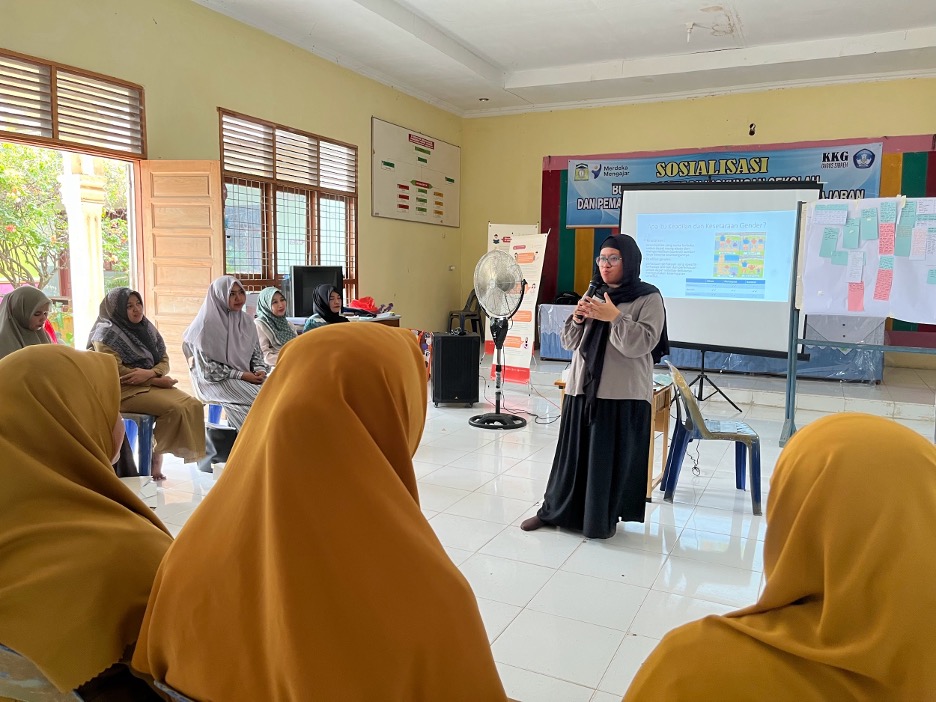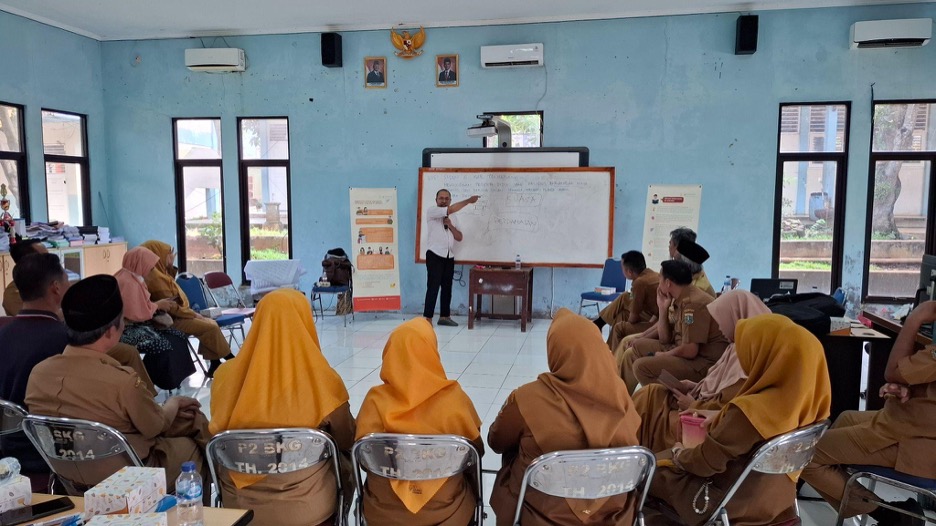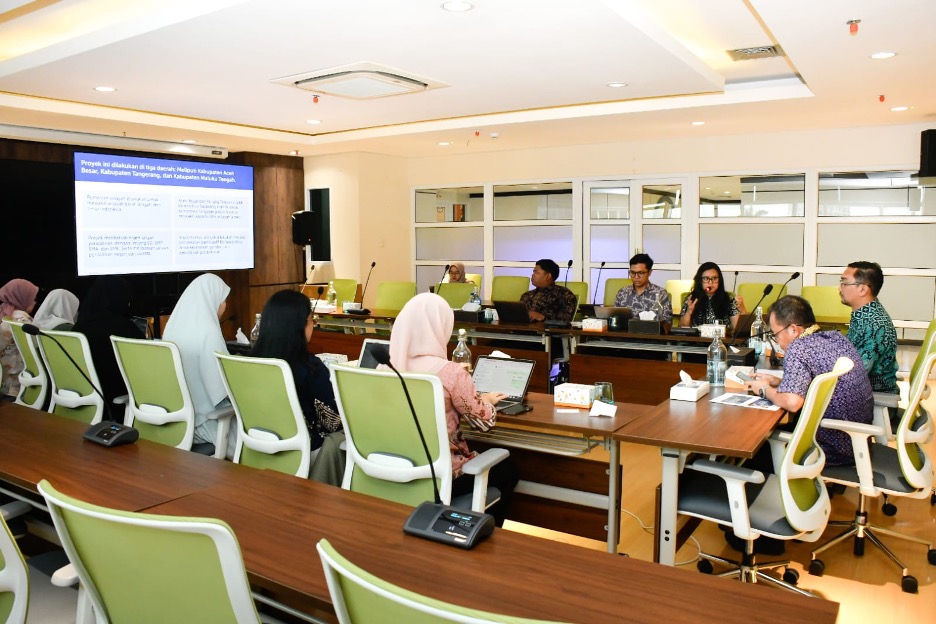GPE KIX Research - Enhancing Indonesian Schools' Capacity to Prevent and Manage Violence Cases
This news item was developed by the team for the GPE KIX research project Empowering schools as frontliners: Enhancing the implementation of violence prevention and management policy in Indonesian schools.
To advance the implementation of Ministerial Regulation 46/2023 on violence prevention and handling in schools, the Centre on Child Protection and Wellbeing (PUSKAPA), supported by the Global Partnership for Education Knowledge and Innovation Exchange (GPE KIX), implemented by the International Development Research Centre (IDRC), and working in strategic partnership with the Centre of Character Strengthening of the Ministry of Primary and Secondary Education Indonesia (PUSPEKA), conducted capacity-building activities in February 2025 with six schools across Aceh, Banten, and Maluku. The project aimed to build collaboration in preventing and responding to violence in schools, while embedding gender equality and inclusion (GEI) and peace education into school practices.
The project engaged 127 teachers, parents, and school leaders in interactive training sessions delivered by PUSKAPA researchers and PUSPEKA’s local facilitators. Participants explored how gender norms and social expectations shape experiences of violence, learned to view peace education as a whole-school effort led by adults, and reflected on ways to embed these perspectives into their school vision, mission, and policies.

Picture 1. GEI training is designed to encourage participants to rethink gender norms that can potentially create violence in an educational environment. This training utilizes group card games to challenge each participant’s individual gender assumptions.
In pre- and post-capacity building interviews, PUSKAPA found that participants were generally familiar with the term “gender equality.” However, their understanding did not fully extend to the concept of equal rights and opportunities between men and women. Through the sessions, they began to recognise that gender issues are also shaped by the social expectations imposed on men and women. Several participants across the three regions further noted that implementing gender equality remains challenging due to the constraints of religious and social norms surrounding domestic roles within households.

Picture 2. Peace education training is a session designed to encourage participants to understand and reconsider the power and actors that can potentially create violence in an educational environment. This training utilizes creative methods by inviting participants to revisit the vision and mission of their school as the most concrete means of creating a “peaceful” situation in the educational environment.
Participants were less familiar with the concept of “peace education.” Initially, they associated it only with the absence of conflict among students. After the capacity-building sessions, however, they came to understand that creating a peaceful environment begins with adults who surround children. Adults need sufficient knowledge and skills to manage and resolve conflicts, not only between students but also among themselves. A systemic effort is also required to ensure that all adults working in schools share common perspectives and attitudes about the value of peace. This can be achieved, for example, by embedding peace principles into a school’s vision and mission, and by adopting regulations and procedures to prevent violence.
At the end of the sessions, PUSKAPA invited participants to identify follow-up initiatives that schools would implement. Each school was asked to propose activities to promote a safe and peaceful environment, aligned with the material they had received. In Aceh, one school organized additional training for teachers and established a case reporting channel, while another developed a standard operating procedure for handling violence cases. In Banten, both schools created campaign materials and planned a dissemination event for students. Finally, in Maluku, one school facilitated routine reflection discussions among teachers, parents, and students, while the other developed new school regulations for students and produced campaign materials.
During the implementation of school initiatives, PUSKAPA provided support and monitored the progress of the schools by offering technical assistance from local researchers and facilitating monthly interactive sessions. These sessions also serve as asynchronous learning opportunities, encouraging participants to engage in independent learning. Participants were able to raise questions that emerged during implementation and access video content prepared by PUSKAPA, which offered tailored responses to their needs.
To promote the results of PUSKAPA’s activities, we met with the Head of the Center of Character Strengthening and the Head of the Education Standards, Curriculum, and Assessment Agency at the Ministry of Primary and Secondary Education. They expressed their appreciation for PUSKAPA’s efforts and considered the school’s initiatives as examples of good practice, encouraging their replication across all Indonesian schools.

Picture 3. Meeting with the Head of BSKAP Ministry of Primary and Secondary Education/GPE Focal Point Indonesia to update project progress, particularly preliminary findings and capacity building with schools.
Following the suggestions of Ministry of Education officials, we are organizing a national workshop in July 2025 (with updates to be shared in the next newsletter) to strengthen the capacity and collaboration of local governments and schools in implementing anti-violence policies from a gender equality and peace education perspective. The workshop aims to facilitate collaborative learning, knowledge exchange, and the development of cross-regional networks that connect local practices with evidence-based national policies.
